With the recent debate about how to handle families at the US border, especially in light of the horrible treatment being reported at the southern border, I want to spend a few days reposting some old blog posts I wrote for Progressive Redneck Preacher about immigration. Hope they bless you!
Micah

I recently shared about the many texts which speak to the experience of displaced people, immigrants, migrants, and the many who face threat due to some federal actions going on here in America. These actions are not just being taken in America alone, but similar moves to exclude and put up barriers to displaced people are going on throughout the Western world, as people respond in fear to the movements of refugees fleeing for their lives.
For those of us who claim to be people of faith, particularly people of the Book – which Jews, Christians, and Muslims all claim to be – this is deeply ironic. In a real and profound way refusing to welcome displaced people with open arms is to forgot our own founding story.
 Deuteronomy 26 puts it well when it instructs believers to pray the following prayer:
Deuteronomy 26 puts it well when it instructs believers to pray the following prayer:
“5 … “My father was a wandering Aramean, and he went down into Egypt with a few people and lived there and became a great nation, powerful and numerous. 6 But the Egyptians mistreated us and made us suffer, subjecting us to harsh labor. 7 Then we cried out to the Lord, the God of our ancestors, and the Lord heard our voice and saw our misery, toil and oppression. 8 So the Lord brought us out of Egypt with a mighty hand and an outstretched arm, with great terror and with signs and wonders. 9 He brought us to this place and gave us this land, a land flowing with milk and honey; 10 and now I bring the firstfruits of the soil that you, Lord, have given me.”
Here the story at the basis of the Hebrew Scriptures, which lay at the foundation of both the Christian New Testament and also the Muslim faith as well, is laid bare:
The faith we have is borne of the experience of being migrant, refugee, displaced people. Our ancestors in faith – Abraham, Isaac and Ishmael, Jacob, Joseph and his brothers, their descendants, the exiles from Judah under Assyria, Bablyon, and Persia – all experienced being displaced. In fact one way to read the story of Exodus is a story not just about  slavery but about God’s feelings about how we treat those so displaced. The descendants of Abraham find themselves in famine, so they flee across national boundaries to Egypt, through the work of their far-seeing son Joseph. Egypt treats these immigrants well, and so they prosper. Then, a ruler who forgets Joseph and his family, forget that what makes a nation great is how it treats its marginalized people, arises. He decides instead to oppress and mistreat these displaced people.
slavery but about God’s feelings about how we treat those so displaced. The descendants of Abraham find themselves in famine, so they flee across national boundaries to Egypt, through the work of their far-seeing son Joseph. Egypt treats these immigrants well, and so they prosper. Then, a ruler who forgets Joseph and his family, forget that what makes a nation great is how it treats its marginalized people, arises. He decides instead to oppress and mistreat these displaced people.
Ultimately this leads to disaster, as plague upon plague befall Egypt because of its choice.
The way Exodus is written, when read literally, is that God makes a choice to act and send plagues upon Egypt as if they are curses. This poetically makes clear that God is not impartial when it comes to responding to the question of who is right – the wealthy, landed, long-term dwellers of a land comfortable in their property and status or the displaced people struggling on the margins, whose human rights lay in threat. No, God takes sides, always siding with the poor, oppressed, marginalized.
This is clearly stated in multiple texts of the Hebrew Scriptures:
 “But you, God, see the trouble of the afflicted;
“But you, God, see the trouble of the afflicted;
you consider their grief and take it in hand.
The victims commit themselves to you;
you are the helper of the fatherless.” – Psalm 10:14
“A father to the fatherless, a defender of widows,
is God in his holy dwelling.
God sets the lonely in families,
he leads out the prisoners with singing;
but the rebellious live in a sun-scorched land” – Psalm 68:5-6
“If you really change your ways and your actions and deal with each other justly, if you do not oppress the foreigner, the fatherless or the widow and do not shed innocent blood in this place, and if you do not follow other gods to your own harm, then I will let you live in this place, in the land I gave your ancestors for ever and ever.” – Jeremiah 7:5-6
“This is what the Lord says: Do what is just and right. Rescue from the hand of the oppressor the one who has been robbed. Do no wrong or violence to the foreigner, the fatherless or the widow, and do not shed innocent blood in this place.”—Jeremiah 22:3
 Again and again, God is described as the one who takes sides, siding with the oppressed, marginalized, and forgotten – with those with the least power and weight to throw around in a community. And particularly with the oppressed.
Again and again, God is described as the one who takes sides, siding with the oppressed, marginalized, and forgotten – with those with the least power and weight to throw around in a community. And particularly with the oppressed.
In fact in the Hebrew Scriptures, God is even at times depicted as a migrant God’s self. God is the God of the wandering Aramean, and God for much of early Hebrew history is depicted as traveling in a pitched tent, the tabernacle which contained the symbols of God’s presence, with the people. In fact when King David suggests to God that he build a great house for God to live in, God says that was never God’s idea and God was content to live as the people, as a migrant.
And early in his childhood, Jesus, too, is depicted as a refugee for child. In Matthew’s Gospel, upon his birth, Jesus faces King Herod threatening all the boys born around Jesus’ age with death so his parents, like the early refugees of his ancestors during famine, Jesus’ parents bring him across national lines to hide for their lives in Egypt. With Herod wanting his life, you can bet that Jesus, Joseph, and Mary didn’t seek papers from the government that sought Jesus’ life to make it legal before entering Egypt. The One Christians like myself see as the embodiment of God, God as men with women & men to dwell, begins his earthly life as an illegal immigrant.
Though Islam does not view Jesus as God in the flesh in the way Christians do, it views his example as emblematic since he is viewed as a great prophet. Also, their faith bursts forth among a highly nomadic people whose nation-crossing migrations mirrors that of the wandering Abraham and Sarah, whom they also look to as their spiritual ancestor.
All three traditions point toward a God that sides with such oppressed and displaced people.
 Yet, one need not take literally the language of God striking Egypt with plagues to see a powerful message in it. After all, when Deuteronomy talks about warnings for the freed people of Israel of woes lying ahead for them like Egypt faced if they follow its example of mistreating the marginalized, displaced, and powerless among them it does so in a way that makes it sound like cause and effect. If they oppress, naturally woe will fall upon them.
Yet, one need not take literally the language of God striking Egypt with plagues to see a powerful message in it. After all, when Deuteronomy talks about warnings for the freed people of Israel of woes lying ahead for them like Egypt faced if they follow its example of mistreating the marginalized, displaced, and powerless among them it does so in a way that makes it sound like cause and effect. If they oppress, naturally woe will fall upon them.
Removed from thought of curses from above, a real truth is spoken of here: As much as we want to divide our future from that of those around us, we are inevitably linked. My fate as an individual cannot be divided from the welfare of those around me, particularly the seemingly powerless. The fate of our nation cannot be divided from that of the most powerless in our midst, nor the welfare of nations around us.
This is what great leaders like Dr. King and Desmond Tutu spoke about, when they wrote
“It really boils down to this: that all life is interrelated. We are all caught in an inescapable network of mutuality, tied into a single garment of destiny. Whatever affects one directly, affects all indirectly. We are made to live together because of the interrelated structure of reality.”
and
“My humanity is caught up, is inextricably bound up, in yours.” We belong in a bundle of life. We say, “A person is a person through other persons. . . A person with ubuntu is open and available to others, affirming of others, does not feel threatened that others are able and good, for he or she has a proper self-assurance that comes from knowing that he or she belongs in a greater whole and is diminished when others are humiliated or diminished, when others are tortured or oppressed, or treated as if they were less than who they are.”
 Ultimately to treat migrant people, displaced people, folks fleeing threats to their lives, well is not just selfless but also in our self-interest. For when others discover fullness of life, feel secure, and can thrive, we all will thrive. And to mistreat others, to push them out, only builds up feelings of alienation, mistrust, resentment, which can come back to haunt us when potential allies and friends in those communities we oppress no longer view us as one to support but enemies.
Ultimately to treat migrant people, displaced people, folks fleeing threats to their lives, well is not just selfless but also in our self-interest. For when others discover fullness of life, feel secure, and can thrive, we all will thrive. And to mistreat others, to push them out, only builds up feelings of alienation, mistrust, resentment, which can come back to haunt us when potential allies and friends in those communities we oppress no longer view us as one to support but enemies.
This too is what Jesus taught, when he warned us in Luke 6,
““Do not judge, and you will not be judged. Do not condemn, and you will not be condemned. Forgive, and you will be forgiven. Give, and it will be given to you. A good measure, pressed down, shaken together and running over, will be poured into your lap. For with the measure you use, it will be measured to you.” (Luke 6:37-38)
and in Matthew 7,
“Do not judge, or you too will be judged. For in the same way you judge others, you will be judged, and with the measure you use, it will be measured to you.” (Matthew 7:1-2)
Ultimately, if we choose to pour out hatred, violence, mistrust, and mistreatment upon the least of these in our midst, we will find such negativity coming back to haunt us in ways we can only begin to imagine. Likewise, if we choose to sow caring, understanding, acceptance, and love in the lives of those most at risk, we ultimately will find it strengthening not just them but our own communities, families, and lives.
We forget this lesson at our own peril. May we embrace the call at the heart of these three great faiths, and choose to embrace the displaced people and the struggling in our midst.
Your progressive redneck preacher,
Micah

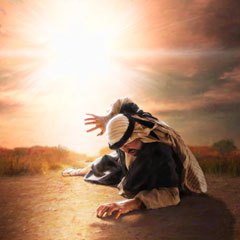 others as fellow bearers of God’s image, people of worth, but instead problems to be solved, disposable and forgettable, ones he can simply push aside or wipe away like garbage. Saul’s conversion which leads him to become St. Paul the apostle comes when he recognizes that the Christ is in those on the margins, those on the fringes, those the world would dismiss as useless and dispensable. He is reminded that each person is a bearer of Christ and no one someone that can be tossed away.
others as fellow bearers of God’s image, people of worth, but instead problems to be solved, disposable and forgettable, ones he can simply push aside or wipe away like garbage. Saul’s conversion which leads him to become St. Paul the apostle comes when he recognizes that the Christ is in those on the margins, those on the fringes, those the world would dismiss as useless and dispensable. He is reminded that each person is a bearer of Christ and no one someone that can be tossed away.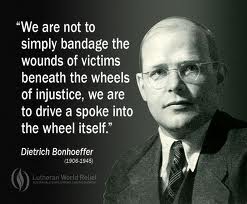 heartlessness to the suffering of others reminded us, “God loves human beings. God loves the world. Not an ideal human, but human beings as they are; not an ideal world, but the real world. What we find repulsive in their opposition to God, what we shrink back from with pain and hostility, namely, real human beings, the real world, this is for God the ground of unfathomable love.”
heartlessness to the suffering of others reminded us, “God loves human beings. God loves the world. Not an ideal human, but human beings as they are; not an ideal world, but the real world. What we find repulsive in their opposition to God, what we shrink back from with pain and hostility, namely, real human beings, the real world, this is for God the ground of unfathomable love.” I am writing on the heels of an amazing conference here in my new home of Durham, NC. Duke University Divinity School sponsored a gathering called “Loving Your Neighbor”, a conference about involvement in the Sanctuary movement.
I am writing on the heels of an amazing conference here in my new home of Durham, NC. Duke University Divinity School sponsored a gathering called “Loving Your Neighbor”, a conference about involvement in the Sanctuary movement.
 “Do not mistreat foreigners who are living in your land. Treat them as you would an Israelite, and love them as you love yourselves. Remember that you were once foreigners in the land of Egypt. I am the Lord your God.” (Leviticus 19:33-34)
“Do not mistreat foreigners who are living in your land. Treat them as you would an Israelite, and love them as you love yourselves. Remember that you were once foreigners in the land of Egypt. I am the Lord your God.” (Leviticus 19:33-34)




 in Alamance County, NC. I hope it blesses you! If you find yourself in or near Burlington, please join us! Life’s Journey meets for worship services on Sundays at 10:30 AM, and is located at 2121 Edgewood Avenue, Burlington, 27215. We also have a sermon-shaping Bible study most Tuesday nights at 6:30 PM in one of the Sunday school classrooms in the church.
in Alamance County, NC. I hope it blesses you! If you find yourself in or near Burlington, please join us! Life’s Journey meets for worship services on Sundays at 10:30 AM, and is located at 2121 Edgewood Avenue, Burlington, 27215. We also have a sermon-shaping Bible study most Tuesday nights at 6:30 PM in one of the Sunday school classrooms in the church.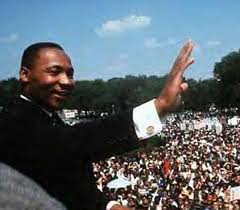 “We shall overcome… We shall overcome… We shall overcome some day…”
“We shall overcome… We shall overcome… We shall overcome some day…” Baptists. They formed because white southerners wanted to keep on owning slaves, even though the rest of American Baptists already were condemning slavery as a sin. These Southern Baptists cherry-picked Scriptures to argue that God’s will was for certain people – namely people of African descent – to be slaves, claiming people of darker hues fell under God’s judgment, due to the sin of a Biblical character named “Ham”. They shaped their preaching, their teaching of Scripture in Bible classes and Sunday school, their prayers, their worship, all around this justification of treating fellow human beings, made in the image of God, as property to be used and abused. It took 150 years for them to admit and confess that they had misused Scripture to turn their worship into worship that enslaves and which, since then, also was used to mistreat and discriminate, since that same theology was also used to justify racial segregation, racialized lynching, and many other ways people of color were mistreated then and now. Of course, it is easy to pick on them, but they were but one of many American churches and denominations then and since who have twisted Scripture to justify such abusive treatment of others, corrupting worship into something that enslaves and oppresses rather than sets free.
Baptists. They formed because white southerners wanted to keep on owning slaves, even though the rest of American Baptists already were condemning slavery as a sin. These Southern Baptists cherry-picked Scriptures to argue that God’s will was for certain people – namely people of African descent – to be slaves, claiming people of darker hues fell under God’s judgment, due to the sin of a Biblical character named “Ham”. They shaped their preaching, their teaching of Scripture in Bible classes and Sunday school, their prayers, their worship, all around this justification of treating fellow human beings, made in the image of God, as property to be used and abused. It took 150 years for them to admit and confess that they had misused Scripture to turn their worship into worship that enslaves and which, since then, also was used to mistreat and discriminate, since that same theology was also used to justify racial segregation, racialized lynching, and many other ways people of color were mistreated then and now. Of course, it is easy to pick on them, but they were but one of many American churches and denominations then and since who have twisted Scripture to justify such abusive treatment of others, corrupting worship into something that enslaves and oppresses rather than sets free.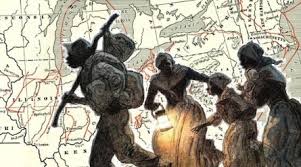 others hidden knowledge, ended in her becoming enslaved, used, and treated like property. This same faith, a worship that oppresses and enslaves, had taken up root and spread like wildfire through the community to the point that, when people saw the faith of Paul and Silas doing what such faith naturally did – setting free the captives – those people swept up in this abusive faith turn on Paul and Silas. They riot. They rage. Like every lynch-mob before and since, the crowd threatens abuse and even death at their hands to Paul and Silas. Ultimately this ends with the two being thrown in prison, possibly with the justification that is for their own good, lest the crowds kill them.
others hidden knowledge, ended in her becoming enslaved, used, and treated like property. This same faith, a worship that oppresses and enslaves, had taken up root and spread like wildfire through the community to the point that, when people saw the faith of Paul and Silas doing what such faith naturally did – setting free the captives – those people swept up in this abusive faith turn on Paul and Silas. They riot. They rage. Like every lynch-mob before and since, the crowd threatens abuse and even death at their hands to Paul and Silas. Ultimately this ends with the two being thrown in prison, possibly with the justification that is for their own good, lest the crowds kill them. walls are, in the end, fruitless. They are no match for worship of the God who sets free. While Paul and Silas worship through prayer and song, an earthquake shakes open their prison. Yes, Paul and Silas set free. Yet freedom does not end there — rather, ultimately, the way in which they live out their faith frees not only them but also their fellow prisoners; and not just their fellow prisoners but even. their jailors. Then as now, those who oppress and abuse others also lose connection with their own full humanity through oppressing those around them. Freeing the oppressed opens the door for the oppressor also to be set free. This is why Desmond Tutu told his fellow civil rights activists during their fight against racist oppression in South Africa, “Be nice to the whites, they need you to rediscover their humanity” and why he also told the mainly white proponents of that system of racial oppression, “ you may have the guns, you may have all this power, but you have already lost. Come: join the winning side.” Worship that sets free invites the oppressor to abandon every idol used to justify so they can embrace the God who sets every captive free and embrace God’s way of justice, becoming partners in God’s work of liberating and loving. You see, even in the case of oppression, none have gone too far or done too much to return to God’s path of reconciliation and restoration, if they will but admit their failing and turn back.
walls are, in the end, fruitless. They are no match for worship of the God who sets free. While Paul and Silas worship through prayer and song, an earthquake shakes open their prison. Yes, Paul and Silas set free. Yet freedom does not end there — rather, ultimately, the way in which they live out their faith frees not only them but also their fellow prisoners; and not just their fellow prisoners but even. their jailors. Then as now, those who oppress and abuse others also lose connection with their own full humanity through oppressing those around them. Freeing the oppressed opens the door for the oppressor also to be set free. This is why Desmond Tutu told his fellow civil rights activists during their fight against racist oppression in South Africa, “Be nice to the whites, they need you to rediscover their humanity” and why he also told the mainly white proponents of that system of racial oppression, “ you may have the guns, you may have all this power, but you have already lost. Come: join the winning side.” Worship that sets free invites the oppressor to abandon every idol used to justify so they can embrace the God who sets every captive free and embrace God’s way of justice, becoming partners in God’s work of liberating and loving. You see, even in the case of oppression, none have gone too far or done too much to return to God’s path of reconciliation and restoration, if they will but admit their failing and turn back. women, justifying sexual and other abuse by powerful people, polluting God’s earth, or arguing for violence and war. We see this when countless religious leaders line up in support of political leaders who are blatantly racist in how they speak and act, and who put in place policies that harm the very ones Scripture says God defends — the poor, the sick, those with disabilities, the immigrant, the refugee, the outcast and the marginalized.
women, justifying sexual and other abuse by powerful people, polluting God’s earth, or arguing for violence and war. We see this when countless religious leaders line up in support of political leaders who are blatantly racist in how they speak and act, and who put in place policies that harm the very ones Scripture says God defends — the poor, the sick, those with disabilities, the immigrant, the refugee, the outcast and the marginalized.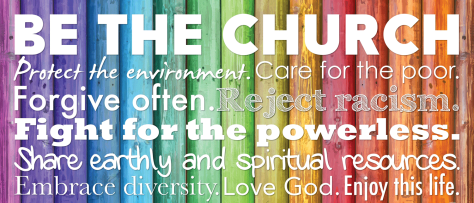
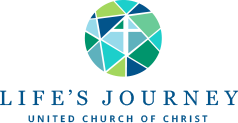 Alamance County, NC. I hope it blesses you! If you find yourself in or near Burlington, please join us! Life’s Journey meets for worship services on Sundays at 10:30 AM, and is located at 2121 Edgewood Avenue, Burlington, 27215. We also have a sermon-shaping Bible study most Tuesday nights at 6:30 PM in one of the Sunday school classrooms in the church.
Alamance County, NC. I hope it blesses you! If you find yourself in or near Burlington, please join us! Life’s Journey meets for worship services on Sundays at 10:30 AM, and is located at 2121 Edgewood Avenue, Burlington, 27215. We also have a sermon-shaping Bible study most Tuesday nights at 6:30 PM in one of the Sunday school classrooms in the church. disciple of the original prophet Isaiah who prophesied after his death and after the exile of the Jewish people by Babylon. They see how their nation was destroyed, their royal palace flattened, and even their holy temple snuffed out. They see so many of its members become exiles and refugees from their homeland. Speaking from such a point of exile themself, this un-named prophet is inspired through their relationship with God to see their situation from a different point of view: now they have the opportunity to become friends, allies, and partners with those with whom they are in exile, tearing down the walls between them, so that they can come to understand the truth and light of God, just as the people of Israel and Judah have. They imagine a time when this time of being scattered refugees will end and all their people who are scattered will be able to be
disciple of the original prophet Isaiah who prophesied after his death and after the exile of the Jewish people by Babylon. They see how their nation was destroyed, their royal palace flattened, and even their holy temple snuffed out. They see so many of its members become exiles and refugees from their homeland. Speaking from such a point of exile themself, this un-named prophet is inspired through their relationship with God to see their situation from a different point of view: now they have the opportunity to become friends, allies, and partners with those with whom they are in exile, tearing down the walls between them, so that they can come to understand the truth and light of God, just as the people of Israel and Judah have. They imagine a time when this time of being scattered refugees will end and all their people who are scattered will be able to be 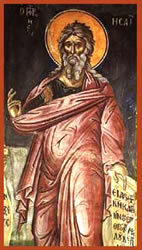 united again. This vision includes a home where even those not yet part of God’s covenant will be welcomed into God’s family, so even those who have been their persecutors will be gathered in and even those now scattered to the most distant islands not yet even listed in any map, shall be welcomed home. This vision probably is a part of what of what Jesus had in mind when, as a rabbi schooled in the words of the Biblical prophets, he said he had other sheep who were not of his fold of the disciples then with him, who must be brought in, and when he prayed of all these scattered ones that they all could be one as he and his Father were one, the very prayer which we in the United Church of Christ look to as our inspiration for our calling to be a united and uniting people.
united again. This vision includes a home where even those not yet part of God’s covenant will be welcomed into God’s family, so even those who have been their persecutors will be gathered in and even those now scattered to the most distant islands not yet even listed in any map, shall be welcomed home. This vision probably is a part of what of what Jesus had in mind when, as a rabbi schooled in the words of the Biblical prophets, he said he had other sheep who were not of his fold of the disciples then with him, who must be brought in, and when he prayed of all these scattered ones that they all could be one as he and his Father were one, the very prayer which we in the United Church of Christ look to as our inspiration for our calling to be a united and uniting people. them and us we must, the early church had grown and changed. No longer was it a tiny group of Jews going to temple in Palestine, no different from those around them but in their shared faith in Jesus. Now the church began for the first time to resemble what archbishop Desmond Tutu once called “the rainbow people of God”. There are observant Jews who are committed to the way of Jesus. There are people who have never stepped foot in a synagogue, who have no clue how to keep kosher, and who more closely resemble in dress, speech, and music the people of their own lands, which include places as varied as Asia Minor, Italy, Greece, Egypt, and Ethiopia. This movement towards extravagant welcome began for these early believers as it had for Second Isaiah, by tragedy and struggle. The church in
them and us we must, the early church had grown and changed. No longer was it a tiny group of Jews going to temple in Palestine, no different from those around them but in their shared faith in Jesus. Now the church began for the first time to resemble what archbishop Desmond Tutu once called “the rainbow people of God”. There are observant Jews who are committed to the way of Jesus. There are people who have never stepped foot in a synagogue, who have no clue how to keep kosher, and who more closely resemble in dress, speech, and music the people of their own lands, which include places as varied as Asia Minor, Italy, Greece, Egypt, and Ethiopia. This movement towards extravagant welcome began for these early believers as it had for Second Isaiah, by tragedy and struggle. The church in  Palestine went under attack by the powers that be for the ways it was counter-cultural and, in its words and actions, called into question the patterns of oppression in its day. So Christians scattered, spreading the way of Jesus with them, being the church wherever they went through their actions, welcoming into their communities their neighbors and friends, many of whom looked and spoke and acted differently than them.
Palestine went under attack by the powers that be for the ways it was counter-cultural and, in its words and actions, called into question the patterns of oppression in its day. So Christians scattered, spreading the way of Jesus with them, being the church wherever they went through their actions, welcoming into their communities their neighbors and friends, many of whom looked and spoke and acted differently than them. together and, with great effort, finding a way to lay their differences aside, find common ground together in their shared faith in Christ, and discover how to work together without having to lay aside the essential truths about who any of them are. As a more modern voice of faith, the late James Baldwin, has said ““We can disagree and still love each other unless your disagreement is rooted in my oppression and denial of my humanity and right to exist.”
together and, with great effort, finding a way to lay their differences aside, find common ground together in their shared faith in Christ, and discover how to work together without having to lay aside the essential truths about who any of them are. As a more modern voice of faith, the late James Baldwin, has said ““We can disagree and still love each other unless your disagreement is rooted in my oppression and denial of my humanity and right to exist.” speaking voice of the Spirit, to get to this point. To me, ultimately the way the decision is made, by listening to and valuing the many divergent and sometimes disagreeing voices in the church, is a living out of a principle Hindu faith leader and civil rights advocate Mahatma Gandhi once called “the many-sidedness of truth”. Rather than truth being one sided, like the top of a table, Gandhi suggests that it is many-sided like a diamond. To truly grasp the full truth of a situation involves looking at each possible facet, from every possible side or angle. What Gandhi meant is that God speaks most clearly through us listening to the multitude of perspectives as fully as we can and looking for the truth that unites them all. As Baldwin’s quote suggests, such listening ought never involve compromising on justice and fair treatment for anyone, especially a marginalized or oppressed person, but it does involve making space for all people to also be treated with such respect, even those you deeply disagree with, so walls can be torn down and reconciliation come.
speaking voice of the Spirit, to get to this point. To me, ultimately the way the decision is made, by listening to and valuing the many divergent and sometimes disagreeing voices in the church, is a living out of a principle Hindu faith leader and civil rights advocate Mahatma Gandhi once called “the many-sidedness of truth”. Rather than truth being one sided, like the top of a table, Gandhi suggests that it is many-sided like a diamond. To truly grasp the full truth of a situation involves looking at each possible facet, from every possible side or angle. What Gandhi meant is that God speaks most clearly through us listening to the multitude of perspectives as fully as we can and looking for the truth that unites them all. As Baldwin’s quote suggests, such listening ought never involve compromising on justice and fair treatment for anyone, especially a marginalized or oppressed person, but it does involve making space for all people to also be treated with such respect, even those you deeply disagree with, so walls can be torn down and reconciliation come.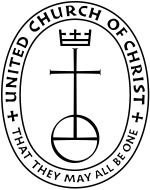 unity that reconciles us into one family in Christ without erasing our differences is the foundation of who we are as a denomination. Our denomination was formed when a number of very different denominations with very diverse ways of worshiping and believing chose to lay aside their differences which could divide them in order to be reconciled with each other. Stepping out in faith, these pioneers in faith chose to live together out of this unity their shared relationship with Christ brought.
unity that reconciles us into one family in Christ without erasing our differences is the foundation of who we are as a denomination. Our denomination was formed when a number of very different denominations with very diverse ways of worshiping and believing chose to lay aside their differences which could divide them in order to be reconciled with each other. Stepping out in faith, these pioneers in faith chose to live together out of this unity their shared relationship with Christ brought.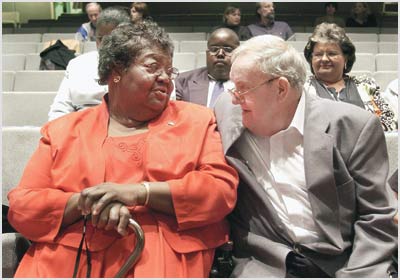 compromising the call to do justice, was beautifully pictured in the life of one United Church of Christ lay-woman, Annie Atwater of Durham. She was an active member of Mt. Calvary United Church of Christ in Durham and her faith led her to speak up against unfair treatment of poor members in her community in general and the inhumane treatment of people of color under segregation.
compromising the call to do justice, was beautifully pictured in the life of one United Church of Christ lay-woman, Annie Atwater of Durham. She was an active member of Mt. Calvary United Church of Christ in Durham and her faith led her to speak up against unfair treatment of poor members in her community in general and the inhumane treatment of people of color under segregation. In Take This Bread, Sara Miles tells how her experience of extravagant welcome changed her life. Growing up, Sara was raised in a home harsh and critical to all things religious, yet she spent her life hungry and searching, a longing she channeled into good things — into her working in kitchens preparing and serving food, her traveling to Central America organizing the fight for social justice there, her working as a reporter in war-torn parts of the world, her finding and marrying the woman she loves, her raising a daughter together with her wife. Yet in all that goodness, her hunger and longing remained, a yearning for something more. One day after becoming a mother, on a whim, she walked into a church that practiced “open communion,” the practice of saying at the communion Table that whoever you are and wherever you are on life’s journey, you are welcome there, without question. Sara was welcomed to take of the bread and the cup, even though it was her first time strolling into the church and even though she had a big chip on her shoulder towards religious people. She was welcomed even though she wasn’t sure what — if anything — she believed. She was welcomed even though she was what some would some folks would call a leftie pink-knick. She was welcomed even though she was a lesbian. Though most churches said “you are not welcome here” to people like her, this one said “come, just as you are”. So she came. She took the bread. She drank the cup. She shared the Lord. And she kept coming, taking, drinking, sharing. And it changed her life.
In Take This Bread, Sara Miles tells how her experience of extravagant welcome changed her life. Growing up, Sara was raised in a home harsh and critical to all things religious, yet she spent her life hungry and searching, a longing she channeled into good things — into her working in kitchens preparing and serving food, her traveling to Central America organizing the fight for social justice there, her working as a reporter in war-torn parts of the world, her finding and marrying the woman she loves, her raising a daughter together with her wife. Yet in all that goodness, her hunger and longing remained, a yearning for something more. One day after becoming a mother, on a whim, she walked into a church that practiced “open communion,” the practice of saying at the communion Table that whoever you are and wherever you are on life’s journey, you are welcome there, without question. Sara was welcomed to take of the bread and the cup, even though it was her first time strolling into the church and even though she had a big chip on her shoulder towards religious people. She was welcomed even though she wasn’t sure what — if anything — she believed. She was welcomed even though she was what some would some folks would call a leftie pink-knick. She was welcomed even though she was a lesbian. Though most churches said “you are not welcome here” to people like her, this one said “come, just as you are”. So she came. She took the bread. She drank the cup. She shared the Lord. And she kept coming, taking, drinking, sharing. And it changed her life. by her welcome at this table to truly see those around her, including the hungry and hurting in her community. She began to use what she learned through her years as an activist to organize people in her community to start a feeding ministry where all such hungry and hurting would be welcome, and where no one need walk away hungry or empty handed. Her one feeding program grew. As it grew, it inspired another to start, and then another after that, and then still more, creating ripples all through her community.
by her welcome at this table to truly see those around her, including the hungry and hurting in her community. She began to use what she learned through her years as an activist to organize people in her community to start a feeding ministry where all such hungry and hurting would be welcome, and where no one need walk away hungry or empty handed. Her one feeding program grew. As it grew, it inspired another to start, and then another after that, and then still more, creating ripples all through her community. his home and his neighborhood, to a road running out of town, through the desert. He is drawn there to befriend someone who is not only a stranger to him, but a foreigner to his country. And though this man from distant Ethiopia is wealthy and in a position of power, this Ethiopian is also a kind of outcast. Luke tells us this man is returning from Jerusalem, where he had gone to try and worship, headed now back to his home county. Likely he was returning heavy hurted.
his home and his neighborhood, to a road running out of town, through the desert. He is drawn there to befriend someone who is not only a stranger to him, but a foreigner to his country. And though this man from distant Ethiopia is wealthy and in a position of power, this Ethiopian is also a kind of outcast. Luke tells us this man is returning from Jerusalem, where he had gone to try and worship, headed now back to his home county. Likely he was returning heavy hurted. No doubt, he was heavy hearted and feeling rejected, as Phillip came up to him. Likely this is why he was reading so intently from the book of Isaiah in our Bibles. There are just a few chapters distance between the text in Isaiah 53 the man of Ethiopia was reading aloud when Phillip arrived and the slightly later text of Isaiah 56 that promises, despite the prohibitions in Leviticus and Deuteronomy, ““Don’t let foreigners who commit themselves to the Lord say, ‘The Lord will never let me be part of God’s people.’ And don’t let the eunuchs say, ‘I’m a dried-up tree with no children and no future.’ For this is what the Lord says: I will bless those eunuchs … who choose to do what pleases me and commit their lives to me. I will give them—within the walls of my house— a memorial and a name far greater than sons and daughters could give. For the name I give them is an everlasting one. It will never disappear!” Likely the man from Ethiopia had seen or heard this promise in Isaiah and wondered, when will this hope become true for me? When will I no longer be on the outside looking in? When will I finally be welcomed, just as I am, within the walls of God’s house? You can see why this passage about the suffering servant stopped him in his tracks. This servant was someone he could relate with: one who was rejected as he has been rejected, one who suffered as he has suffered, but all in order to make room for others to be welcomed into God’s tent as God’s own family.
No doubt, he was heavy hearted and feeling rejected, as Phillip came up to him. Likely this is why he was reading so intently from the book of Isaiah in our Bibles. There are just a few chapters distance between the text in Isaiah 53 the man of Ethiopia was reading aloud when Phillip arrived and the slightly later text of Isaiah 56 that promises, despite the prohibitions in Leviticus and Deuteronomy, ““Don’t let foreigners who commit themselves to the Lord say, ‘The Lord will never let me be part of God’s people.’ And don’t let the eunuchs say, ‘I’m a dried-up tree with no children and no future.’ For this is what the Lord says: I will bless those eunuchs … who choose to do what pleases me and commit their lives to me. I will give them—within the walls of my house— a memorial and a name far greater than sons and daughters could give. For the name I give them is an everlasting one. It will never disappear!” Likely the man from Ethiopia had seen or heard this promise in Isaiah and wondered, when will this hope become true for me? When will I no longer be on the outside looking in? When will I finally be welcomed, just as I am, within the walls of God’s house? You can see why this passage about the suffering servant stopped him in his tracks. This servant was someone he could relate with: one who was rejected as he has been rejected, one who suffered as he has suffered, but all in order to make room for others to be welcomed into God’s tent as God’s own family. When Phillip arrived, the words Phillip shared with him connected directly with this man’s burning questions. He discovered in Christ one who welcomed him, just as he is, fully as God’s child. He discovered for himself what Paul later would proclaim to the Galatians: “In Christ, there is neither Jew nor Greek; there is neither slave nor free; nor is there male and female, for you are all one in Christ Jesus”. And when this man asks to be welcomed into Christ by baptism, just as Sara did not encounter a long list of requirements to join Christ at his table, but was told “Whoever you are and wherever you are on life’s journey, you are welcome here”, so Philip said the same about the waters of baptism when asked: nothing prevents you.
When Phillip arrived, the words Phillip shared with him connected directly with this man’s burning questions. He discovered in Christ one who welcomed him, just as he is, fully as God’s child. He discovered for himself what Paul later would proclaim to the Galatians: “In Christ, there is neither Jew nor Greek; there is neither slave nor free; nor is there male and female, for you are all one in Christ Jesus”. And when this man asks to be welcomed into Christ by baptism, just as Sara did not encounter a long list of requirements to join Christ at his table, but was told “Whoever you are and wherever you are on life’s journey, you are welcome here”, so Philip said the same about the waters of baptism when asked: nothing prevents you.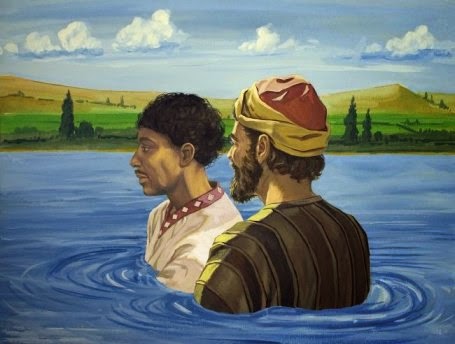
 This Friday marked the 50th anniversary of the Stonewall protests in New York. On June 28, 1969, police swept into Stonewall Inn to beat, arrest, and harass members of the gay, bisexual, lesbian, and transgender community, just as police had done regularly over and over again, not just in New York City but throughout our country, from time immemorial. Yet, not this time. Tired of being jailed, beaten, humiliated, and marginalized simply for being who they were, those at Stonewall said “no”. This time, they had enough. They stood up. They acted out. They protested, all at great risk to themselves. Stonewall marked the beginning of a movement to speak up for civil rights and the equal treatment for gay, lesbian, bisexual, and transgender people, a movement which continues to this day all over the world.
This Friday marked the 50th anniversary of the Stonewall protests in New York. On June 28, 1969, police swept into Stonewall Inn to beat, arrest, and harass members of the gay, bisexual, lesbian, and transgender community, just as police had done regularly over and over again, not just in New York City but throughout our country, from time immemorial. Yet, not this time. Tired of being jailed, beaten, humiliated, and marginalized simply for being who they were, those at Stonewall said “no”. This time, they had enough. They stood up. They acted out. They protested, all at great risk to themselves. Stonewall marked the beginning of a movement to speak up for civil rights and the equal treatment for gay, lesbian, bisexual, and transgender people, a movement which continues to this day all over the world.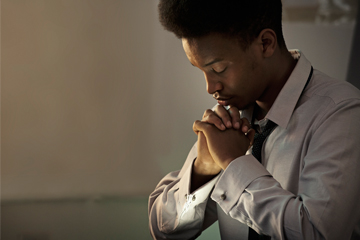 continue to read the book of Acts together, we will see more people persecuted, jailed, exiled as refugees, and even killed for speaking up against the powers of oppression that marginalize, use, and abuse. We are not done yet. More will need yet to be done. Just as with these first disciples, as with Stonewall and with the march on Washington, we cannot be silent in the face of injustice. We must remain ready, vigilant, our sleeves rolled up and all of us poised to work whenever the need arises.
continue to read the book of Acts together, we will see more people persecuted, jailed, exiled as refugees, and even killed for speaking up against the powers of oppression that marginalize, use, and abuse. We are not done yet. More will need yet to be done. Just as with these first disciples, as with Stonewall and with the march on Washington, we cannot be silent in the face of injustice. We must remain ready, vigilant, our sleeves rolled up and all of us poised to work whenever the need arises. working for a just and loving world. This involves fear being replaced with love and hope. We often live in fear – fear of being hurt or being taken advantage of by others, fear of there not being enough for all. It is such a fear that leads straight people to fear if they welcome and embrace queer people and their families, somehow those straight people and their families will be diminished. It is such fear that leads people to silence the voices of those who are different. It is such fear that leads some to build walls to keep out the immigrant or the refugee, even when it causes the kinds of harm we have seen it do this past week. It is such a fear of the bottom line which leads some to look away from our collective need to care for creation so it can continue to foster life, shutting their eyes to the damage neglecting or polluting the earth brings.
working for a just and loving world. This involves fear being replaced with love and hope. We often live in fear – fear of being hurt or being taken advantage of by others, fear of there not being enough for all. It is such a fear that leads straight people to fear if they welcome and embrace queer people and their families, somehow those straight people and their families will be diminished. It is such fear that leads people to silence the voices of those who are different. It is such fear that leads some to build walls to keep out the immigrant or the refugee, even when it causes the kinds of harm we have seen it do this past week. It is such a fear of the bottom line which leads some to look away from our collective need to care for creation so it can continue to foster life, shutting their eyes to the damage neglecting or polluting the earth brings.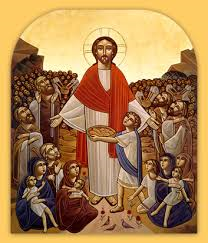 by the Spirit, left baskets upon baskets left over for those hungry masses to take home. As we live out this difference as an outpost of God’s kin-dom here on earth as it is in heaven, choosing to be the church together, we send ripples around us across the waters of our world, our examples inspiring others to live and act for justice and compassion who otherwise would just sit on the sidelines. By choosing to be the church in this way we plant seeds of justice and mercy in the soil of God’s earth which God’s Spirit can water, nourish, and cause to grow all around us.
by the Spirit, left baskets upon baskets left over for those hungry masses to take home. As we live out this difference as an outpost of God’s kin-dom here on earth as it is in heaven, choosing to be the church together, we send ripples around us across the waters of our world, our examples inspiring others to live and act for justice and compassion who otherwise would just sit on the sidelines. By choosing to be the church in this way we plant seeds of justice and mercy in the soil of God’s earth which God’s Spirit can water, nourish, and cause to grow all around us.